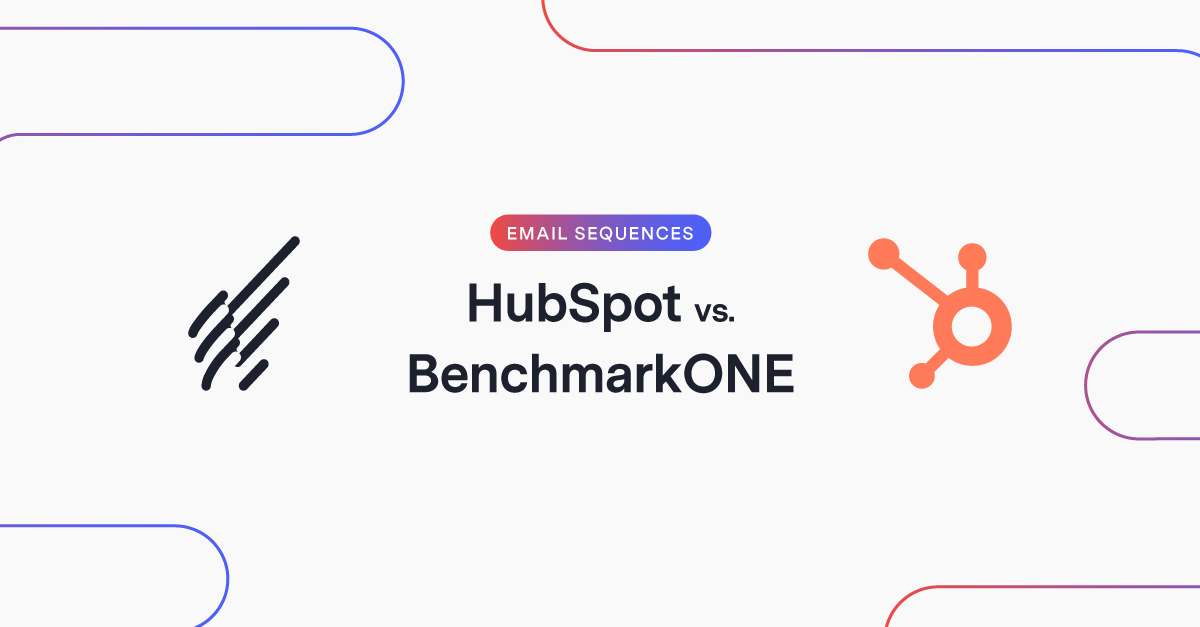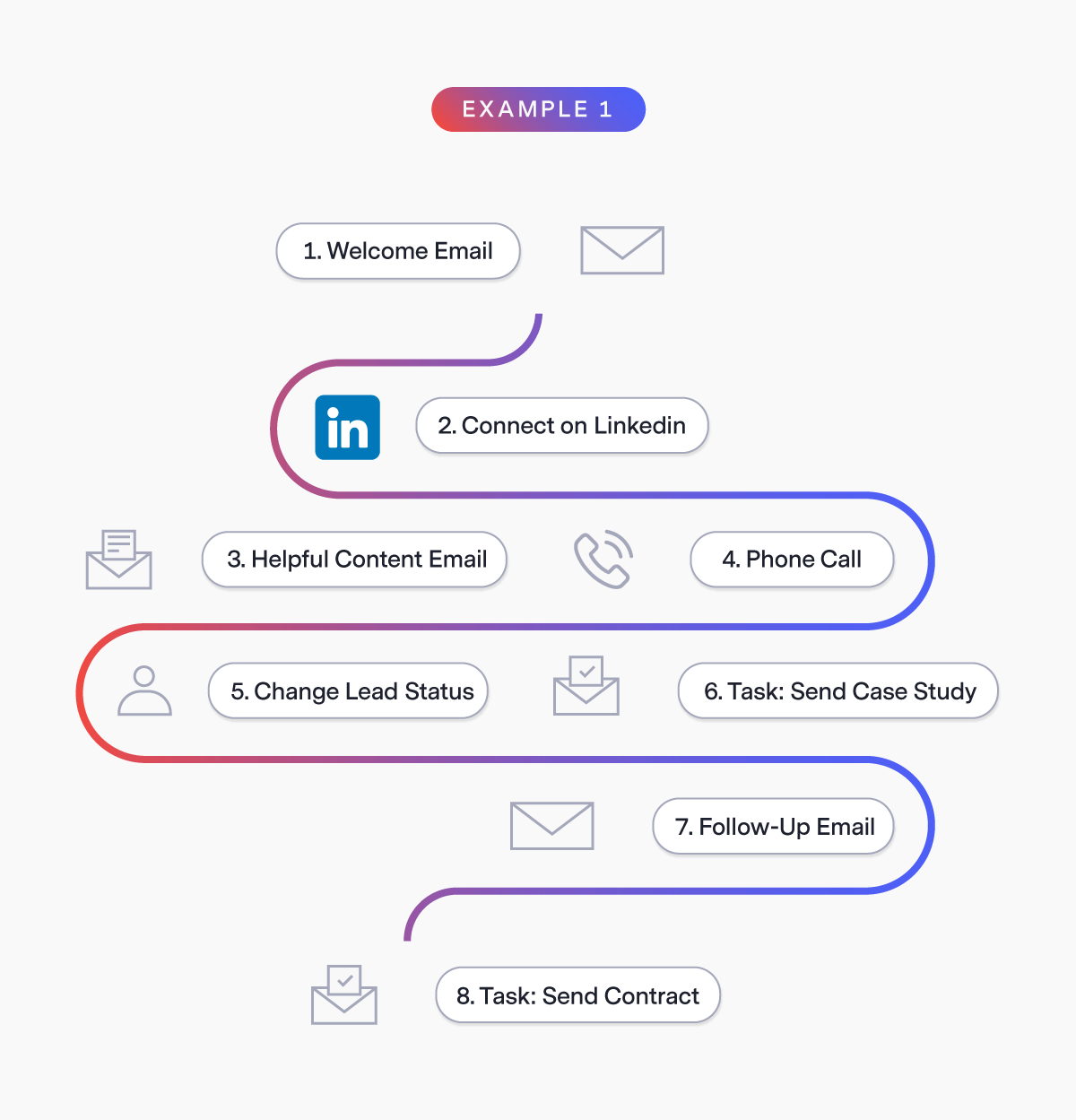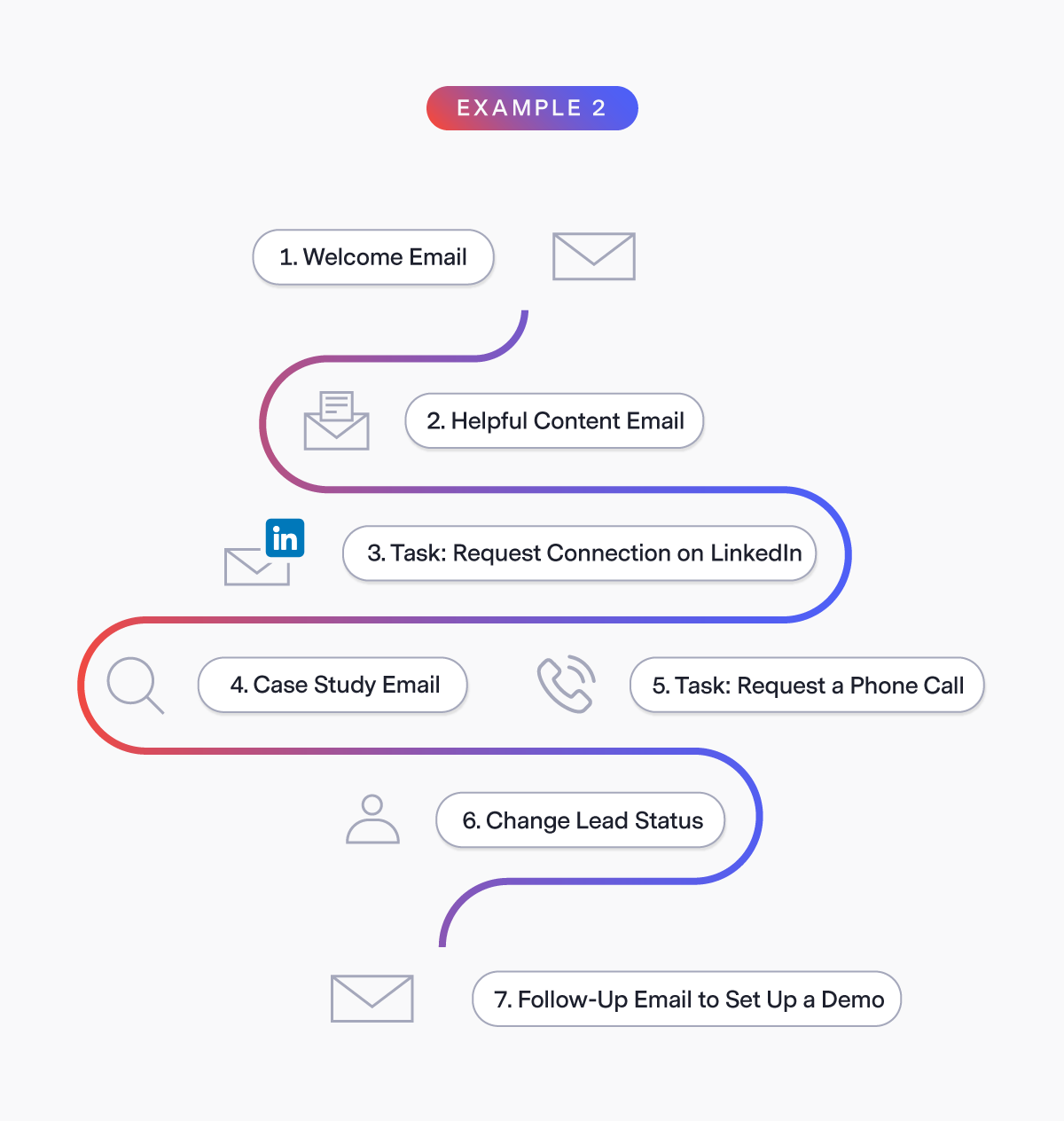Email Sequences: HubSpot vs. BenchmarkONE
Sometimes, it’s not about how many leads you generate; it’s about what you do with those leads once they’re in your database. Generating leads is a wasted effort if you let leads go untouched in your CRM. Providing adequate outreach through a series of touchpoints not only helps you stay on top of recently generated […] The post Email Sequences: HubSpot vs. BenchmarkONE appeared first on BenchmarkONE.

Sometimes, it’s not about how many leads you generate; it’s about what you do with those leads once they’re in your database. Generating leads is a wasted effort if you let leads go untouched in your CRM.
Providing adequate outreach through a series of touchpoints not only helps you stay on top of recently generated and high-priority leads but it enables you to build trust with them and lay the foundation for a strong relationship. It’s moves like these that are crucial when it comes time for your leads to make a buying decision.
This is where sequences come in. Sequences are a feature enabled by marketing automation platforms, and they help ensure you’re staying on top of every lead opportunity.
If you’re using a marketing automation tool or in the market for one, chances are high that you’ve heard of HubSpot’s software and a little bit about what it can do for you. While HubSpot may be one of the most popular marketing automation tools out there, it isn’t always the best fit for small businesses. In this blog post, we’ll be examining HubSpot sequences, as well as how they compare to BenchmarkONE’s sequences, so you can get a better idea of which is ideal for your small business needs.
What are HubSpot Sequences?
HubSpot sequences are a tool within the software that allows users to send targeted and timed email templates to their contacts. Users can also set up reminders for themselves to schedule follow-ups with individual contacts via phone or email.
How do Hubspot Sequences Work?
HubSpot sequences nurture contacts on a timeframe specified by the user. They’re customizable, and they utilize pre-made email templates, saving users time. The key with HubSpot sequences is to ensure you’re reaching out to valuable contacts without having to do so manually. By setting up these sequences, you can assure proper outreach is being provided, all while you’re busy getting other things done.
Sequences can be accessed in the toolbar. However, they are not available for all accounts. Also, if you have other users within your account that will be handling sequences, you’ll need to ensure they have the right permissions set up.
HubSpot Sequences Best Practices
When using sequences, it’s important that you follow some basic rules so that you are successful. You want your sequences to strike the right rhythm and result in a meeting, call, or even a sale. Here are some best practices for ensuring your HubSpot sequences do what you want them to do:
- Know your audience. Before you set up any automated outreach, you need to understand who you’re reaching out to. Know your audience by doing the appropriate research. This involves not only identifying your buyer personas but also identifying where each lead is coming from and where they are in the buyer’s journey.
- Create customizable email templates. You’ll want to quickly pull the right email to add to your sequence, so make sure you create customizable email templates to choose from. There are a variety of different emails you could send, such as welcome emails, emails that share blog posts or guides, or special promotions.
- Personalize. Pay attention to where your contact is in the buyer’s journey and tailor your outreach to them. Since your templates are customizable, it should be easy to adjust or pick and choose what each contact needs.
- Time your sequence right. You don’t want to send too many emails, as that will annoy your contacts. On the other hand, you don’t want to let too much time go by in between outreach, as they’ll forget who you are and why you’re reaching out.
- Don’t neglect to assign yourself tasks. You’ll want to ensure you follow up adequately and keep an eye on your important contacts, so make sure you use the task functionality.
- Unenroll contacts when needed. Once a contact emails you back, sets up a meeting, or becomes a customer, make sure you unenroll them, so they don’t continue to get messages that no longer align with where they are in the customer journey.
Hubspot Sequences Examples
When it comes to putting together a sequence, ultimately, it comes down to what you want to achieve. Some goals your sequences can help you achieve include:
- Setting up an exploratory call
- Scheduling a demo
- Downloading an eBook
- Signing up for a webinar
- Purchasing a product or service
Below are some examples of HubSpot sequences to vie you an idea of how you can set them up according to your different needs.


HubSpot Sequences vs. BenchmarkONE Sequences
The simple truth is that HubSpot isn’t for everyone. But that doesn’t mean you can’t take advantage of the power that sequences have to offer. BenchmarkONE offers email sequences that are easy to put together and effective at moving leads through your funnel.
But how are BenchmarkONE’s sequences different from HubSpot’s? Let’s take a look.
Accessibility
It’s important to note that if you want to use HubSpot sequences, you must have a Sales Hub, Service Hub, or Enterprise account with an assigned professional. Since these plans offer very specific features (and a lot of them), they don’t make sense for everyone. You may find yourself enrolled in one plan just to access a few things (email sequences being one of them) and end up with a robust toolset that you barely use.
For BenchmarkONE users, however, our marketing automation and email marketing capabilities are included in our free plan. If you want to send compelling, customizable email sequences and assign yourself follow-up tasks, you can do so no matter what plan you’re signed up for.
Cost
HubSpot’s sequences feature is not available to free CRM users or in their suite of free tools. HubSpot’s Sales Hub and Service Hub plan starts at $45/month. So, if you want to take advantage of their email sequences, then you have to spend at least that to have it included in your feature set.
As previously mentioned, BenchmarkONE’s sequences capabilities can be accessed in all plans, including our free plan. Paid plans start at $29/month for 500 contacts and unlimited users. But if you want to take advantage of software that enables consistent outreach and task management, you don’t have to pay anything with BenchmarkONE.
How to Set Up a Sequence in BenchmarkONE
Setting up a sequence in BenchmarkONE is super easy. Like HubSpot’s sequences, you have to name your sequence. You also need to choose your trigger type, including tag score or contact status.
Contact Status
Contact status pertains to where your contact is within the buyer’s journey. The standard status tier is as follows:
- Lead
- Prospect
- Sales Opportunity/Qualified Lead
- Closed Won
- Closed Lost
When you use this trigger type, it allows you to target a specific lead group based on how close they are to making a purchase decision. So, for example, if you want to target qualified leads with your sequence, using this approach makes it incredibly easy.
Tag Score
In BenchmarkONE, you can tag your contacts based on certain criteria and characteristics. For example, if you’re a furniture supply and manufacturer and someone downloads your “Guide to Building a Dining Room Table.” You could set it up so they automatically receive a tag, “Dining Table,” which would then indicate that they may be looking for a new dining table.
You can assign a tag to specific webpages, forms and email links, so as your contacts interact with specific content, their tag score can increase. So if they download the “Guide to Building a Dining Room Table,” click a link to see New Dining Table Collection in an email, and visit your “How to Measure for a Dining Room Table” blog post, their “Dining Table” tag score will increase, indicating that they are highly interested in Dining Tables.
Setting up a sequence using tag score means that once a contact with a particular tag achieves a certain numeric score, then the sequence will begin.


If you choose “Send an email,” your next step will be to select a template.

Once that step is added, you can continue to add automations till your sequence is complete. Automated steps to choose from include:
- Send an email
- Adjust contact score
- Start/Stop a campaign
- Tag a contact
- Remove tag from contact
- Update contact record
- Update a custom field
- Create task
- Create a note
- Send notification
- Create a deal
- Add to event
- Remove from event
- Unsubscribe contact
- Send webhook
There’s no one-approach-fits-all. BenchmarkONE’s sequences offer a ton of automation options, ensuring you provide each contact with outreach that’s tailored to their needs and helps you stay on top of your important leads.
Intrigued? Get started with BenchmarkONE today and learn more about how our marketing automation and CRM software can help you set up sequences so you can take advantage of your high-priority leads and manage outreach more efficiently.
The post Email Sequences: HubSpot vs. BenchmarkONE appeared first on BenchmarkONE.




















